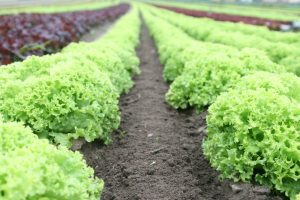
Organic wine certification
Organic wine is a wine made from grapes grown in accordance with principles of organic farming, which typically excludes the use of artificial chemical fertilizers, pesticides, fungicides and herbicides.
Production and preservatives
Wine production comprises two main phases – that which takes place in the vineyard (i.e. grape growing) and that which takes place in the winery (i.e. fermentation of the grapes into wine, bottling etc.). The baseline definition of organic wine as “wine made with grapes farmed organically”, deals only with the first phase (grape growing). There are numerous potential inputs which can be made during the second phase of production in order to ferment and preserve the wine. The universal wine preservative is sulphur dioxide. The issue of wine preservation is central to the discussion of how organic wine is defined.
The wine matures over time, and it is widely considered that certain types of wines improve with ageing, as the flavours become more integrated and balanced. As a result, the greatest percentage of wines are produced in a way that allows them to last, sometimes as long as decades. The use of added sulphites is debated heavily within the organic winemaking community. Many vintners favour their use in small quantities for stabilization of wine, while others frown on them. Currently, the only effective preservatives that allow wines to last for a long period are ‘non-organic’. While there are a growing number of producers making wine without added preservatives, it is generally acknowledged that these wines are for consumption within a few years of bottling.
The various legal definitions of organic wine serve to address this challenge regarding the use of preservatives. In some parts of the world, namely Europe, wine cannot legally be labelled as ‘Organic Wine’. Wines that have added sulphites, but are otherwise organic, are labelled “wine made from organic grapes.” In the United States, wines certified “organic” under the National Organic Program cannot contain added sulphites.
Organic vs. conventional wine growing
In the USA, strict rules govern the organic winemaking process at all stages of production including harvesting, the types of yeast that can be used during fermentation as well as storage conditions. These rules are applied to all imported and domestic wines that acquire USDA certification. In the USA, the total sulphite level must be less than 20 parts per million in order to receive organic certification. Organic certification in the UK is simpler as based on the fact that the grapes are grown organically.
which wine is better for our health?
So, the question is: which wine is better for our health? Pure organic wine or a wine made from organically grown grapes?
To answer this question we need to know the difference between the two. Is a wine made from organically grown grapes important? The answer is: yes, it is very important.
Why is it important?
Firstly, when grapes are grown organically it means there were no chemical pesticides, herbicides and fertilizers used in the process and so there is no trace of those chemicals in grapes. that means they are better for your health.
Secondly, with organic crops, we help our environment stay safe for workers and for future generation.
The only question that remains is how we address the sulphite that was used as the preservative. The main concern for wine producers is the quality and taste of the wine produced and this is directly related to wine microbial stability. To address this issue, sulphite (SO2) is used. Because of that, certifiers may accept a very specific amount of sulphite and organically wine producers must print this sentence on their products:
‘Made with Organically Grown Grapes’.
These little words on a bottle are your ticket to drinking more green and healthier for two reasons:
- Wines are made with grapes from Certified Organic vineyards
- Wines must contain less than 100 ppm sulphites (good!)





